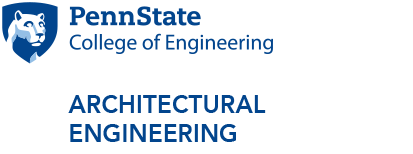
Architectural Engineering Disciplines
Four options are available for architectural engineering students to specialize in during the last two years of a five-year undergraduate degree program.
Construction Option
Students in the construction option take an active role in the planning, management, design, and construction phases of building projects.
Construction option students focus on management techniques and economic considerations associated with construction of a full range of building projects. Courses available include:
- Construction planning and management
- Augmented/virtual reality
- Construction, automation, and robotics
- Operations research
- Scheduling and estimating
- Construction methods
- Facilities engineering and management
Lighting/Electrical Option
Students in the lighting/electrical option create high-quality, safe, and effective lighting and electrical distribution systems. Courses available include:
- Electrical circuits and controls
- Power distribution
- Illumination and daylighting systems for buildings
- Theory of building illumination
- Advanced architectural illumination system design
- Computer-aided lighting design and analysis
- Advanced building electrical system design
Mechanical Option
Students in the mechanical option combine a strong background in building systems with mechanical engineering fundamentals to provide quality indoor environments for people, including thermal and acoustical comfort.
All mechanical option students have completed in-depth course work in heating, ventilation, and air conditioning (HVAC) fundamentals, analysis, and design. They focus on the design of total building systems. Courses available include:
- Building energy modeling
- Building controls
- Indoor air quality
- Building solar design
- Noise control and acoustic design
- Distributed energy systems
Structural Option
Students in the structural option specialize in designing buildings that successfully integrate structure, environmental systems, and architecture.
All structural engineering students begin with a background in statics, dynamics, materials, design, and analysis techniques and continue with geotechnical and foundation engineering, advanced concrete and steel design, wood design, and masonry design. Additional course topics include:
- Wind and earthquake analysis and design
- Computer modeling and building structure
- Forensics
- Legal aspects of construction
- Residential construction
- Historic structure
- Building enclosure



We accept transfer students!
- Contact Moses Ling at mdl5@psu.edu if you are interested in transferring to Penn State AE to finish your degree!



